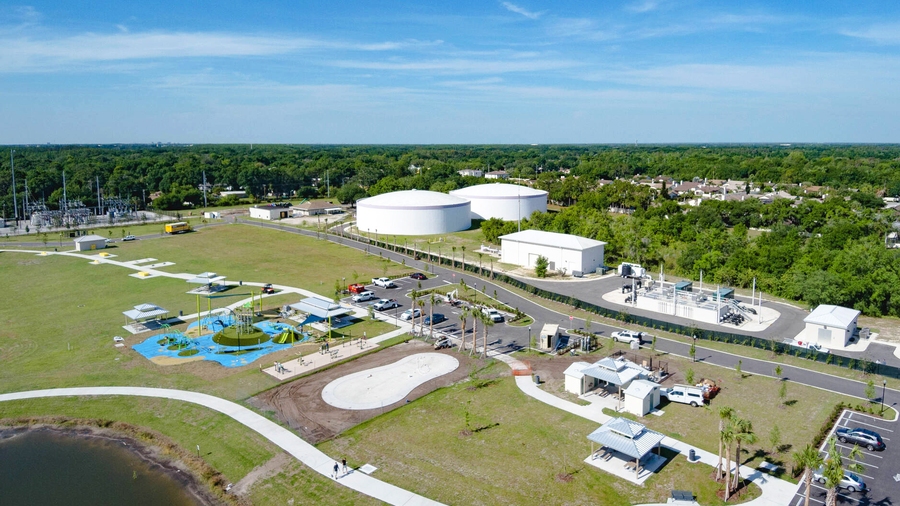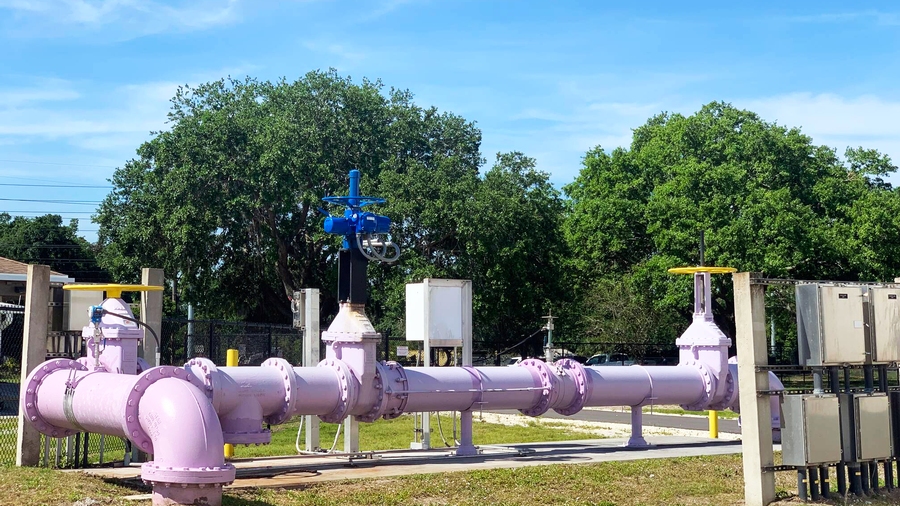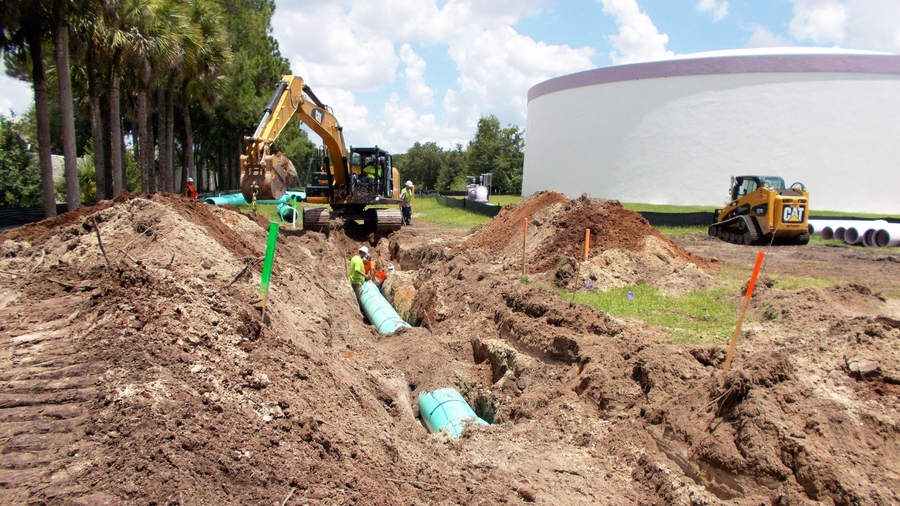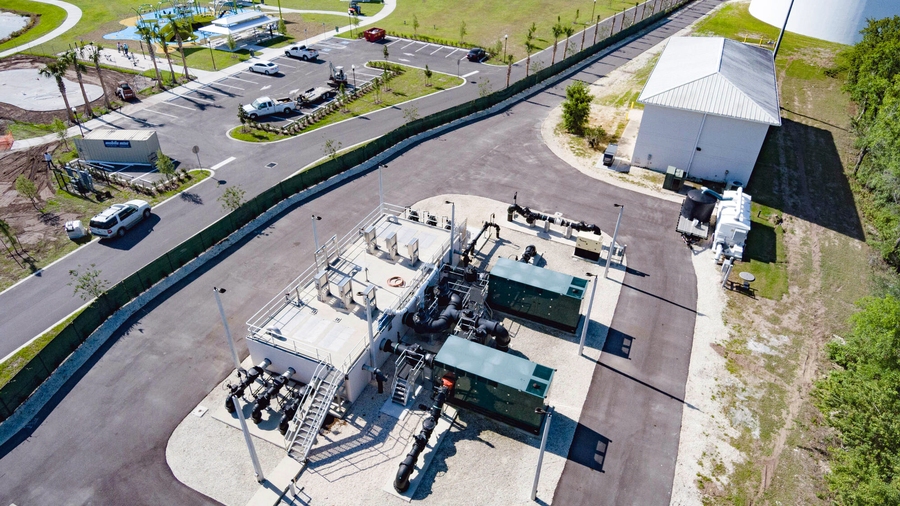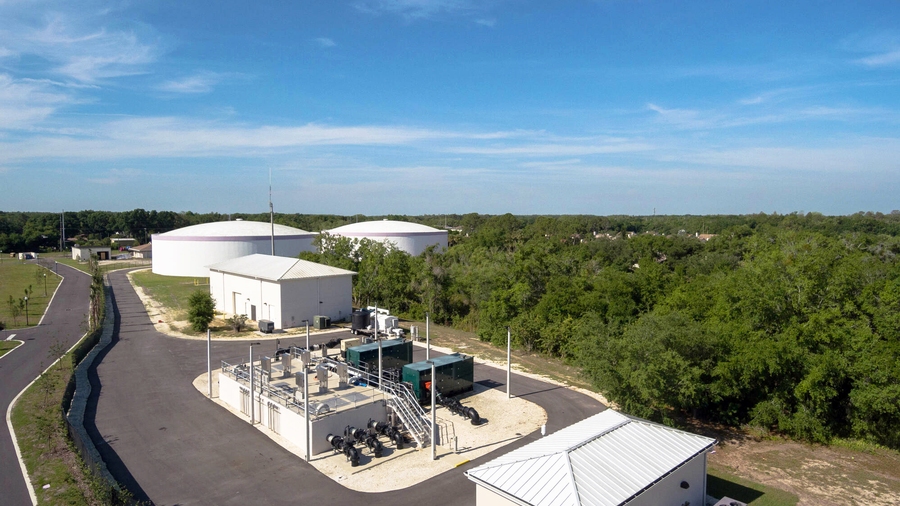Delwood Super Station
This project is one of three design-build projects for Hillsborough County under a program to consolidate three existing wastewater treatment facilities (WWTF) to one expanded facility and two master wastewater pump stations. This $11 million project specifically repurposed the Dale Mabry Advanced WWTF to a 10-mgd triplex master pump station, relocated the Brushy Creek 6-mgd reclaimed water outfall facility, and involved a public park. The WWTF was fully operational until the new pump station, wastewater force main, and reclaimed water transmission mains were constructed and placed into operation.
The design included installing wet wells partially submerged and partially above ground to save significant operation and maintenance costs long term. The design reduced capital costs by requiring lower horsepower pumps and simplifying the construction due to less excavation and dewatering and provided for the upstream lift stations to operate more efficiently.
The collaborative delivery method of design-build was necessary to successfully execute a fast-tracked schedule and coordination with the overall Northwest Consolidation Program, which defined the design, permitting, and construction to be completed within 21 months. More than $200,000 will be saved in power costs over 20 years because of our innovative design approach, in addition to the reduced noise nuisance to the surrounding neighborhood for depth and duration of dewatering during construction.
Project summary
Consolidation of three existing wastewater treatment facilities into one expanded facility.
Timeline for design, permitting and construction is less than two years.
Innovative design approach will save $200,000 in power costs over 20 years.
Talk to an expert
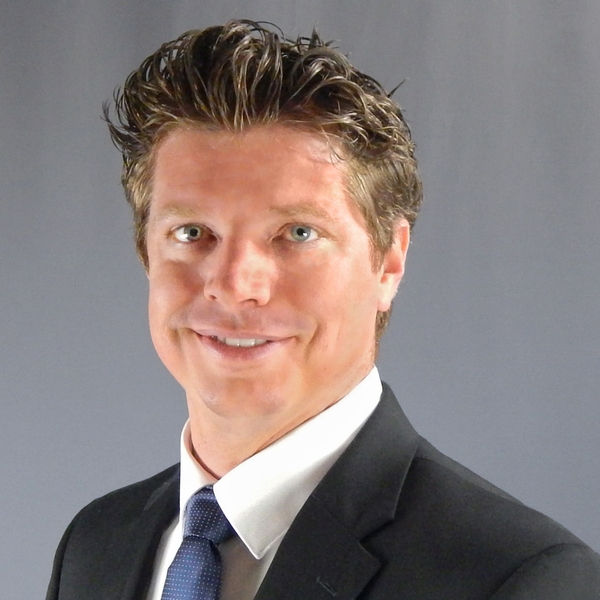
Weston Haggen, PE*
Section Manager,
Senior Project Manager
Weston is a seasoned professional with expertise in water and wastewater treatment, reclaimed water facilities, and water infrastructure. His skills include designing pipeline networks, lift stations, and potable water quality enhancements. Weston is also experienced in hydraulic modeling, flushing programs, infiltration and inflow studies, and data management.


